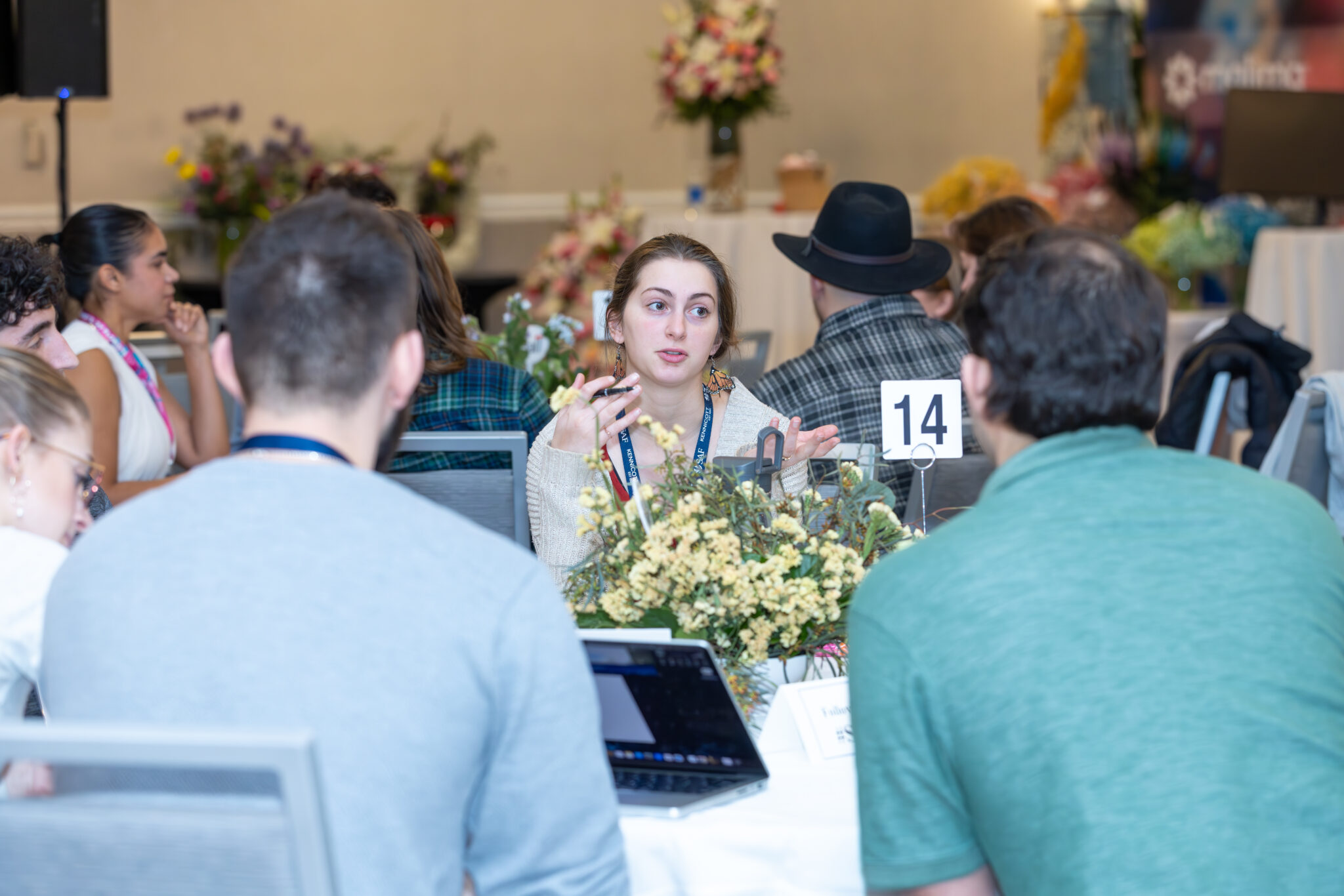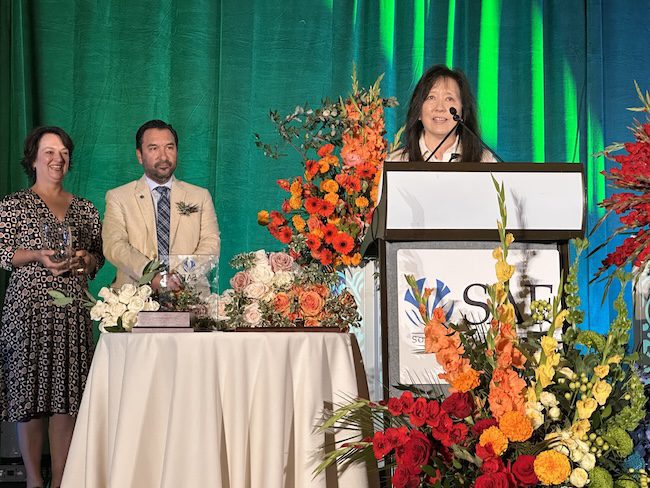
Cameron Pappas of Norton’s Florist, Sarah Bagle of Accent Décor, and Jodi McShan, AAF, of McShan Florist will share advice and best practices for young leaders during a session at SAF’s Next Gen LIVE! event July 31-Aug. 2 in Miami, Florida.
When Cameron Pappas stepped into a leadership role at Norton’s Florist in Birmingham, Alabama at the age of 27, he says he underestimated his authority because he felt his age and lack of experience compared to other employees made him unqualified to give orders or constructive criticism.
He realized his misstep when he saw that his staff was counting on him for advice, leadership and direction.
“When you are placed in a position of authority over other people, regardless of experience differences, age differences, differences of opinion, you have been placed in a position of authority,” Pappas says. “You should expect the individuals under you to not only respect decisions you make but to depend on you to make the right decisions, or own poor decisions — nobody is perfect.”
By some estimates, there are five generations in the workforce, with millennials making up the largest portion at 35 percent, according to the U.S. Bureau of Labor Statistics. As the older workforce retires, younger workers such as Pappas are stepping into leadership roles, creating challenging dynamics as they learn to manage employees of different ages — some of whom have decades more experience.
How do young bosses earn respect when they are managing different generations and perhaps still fine-tuning their leadership skills? The Society of American Florists’ Next Gen LIVE! event for floral professionals 45 and under will tackle that and other questions during the session, “How to Lead When You’re A Young Boss.”
We asked a few young bosses sitting on the session’s panel to share their lessons learned and best advice. Here’s what they said.
Jodi McShan, AAF, Vice President, McShan Florist
Jodi McShan, AAF, was 30 years old when she became vice president at McShan Florist in Dallas, Texas. She says it’s important to encourage employees to find solutions.
“Even though you know you know the answer, if it comes from you, it may not be taken well,” she says. “Learn how to lead people to the answer. While it takes more time, it gets a better result long-term.”
McShan also encourages young bosses to seek input from long-time employees before implementing changes.
“Even though I grew up in the business, longer term employees saw me as a teenager,” she says. “You have to learn to ask them questions and truly listen to their feedback before making major changes. Even if it’s something they are against, they will feel heard and respect you more for being open to listening. After all, they have a different perspective and maybe a better solution!”
Sarah Bagle, Chief Creative Officer, Accent Décor
Sarah Bagle began managing a team at the age of 25. It took her awhile to understand that a big part of being a leader is growing and developing a team, she says. She encourages young bosses to trust themselves and seek advice.
“Learn from those that came before you,” Bagle says. “Listen to new and challenging perspectives, and trust your own instincts. There is a reason you have been given a leadership role.”
Cameron Pappas, Co-owner and Vice President, Norton’s Florist
Pappas puts an emphasis on personal growth because everyone has room to improve, he says.
“True difference makers understand that and do everything they can every single day to get better,” he says. “Learn from mistakes. Be open and honest with staff who work below you.
“Whatever you do, make sure that you are doing whatever you can to improve. Not every day is a success. Life would be boring if it was. Notice mistakes, own mistakes, learn from mistakes…. It’s easy to talk the talk, but true leaders walk the walk.”
Click here to see the full schedule of events.
Amanda Jedlinsky is the managing editor of SAF NOW.








